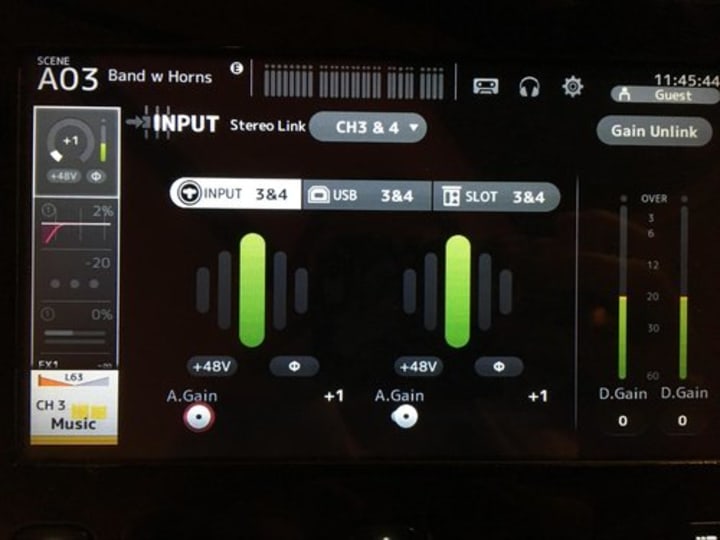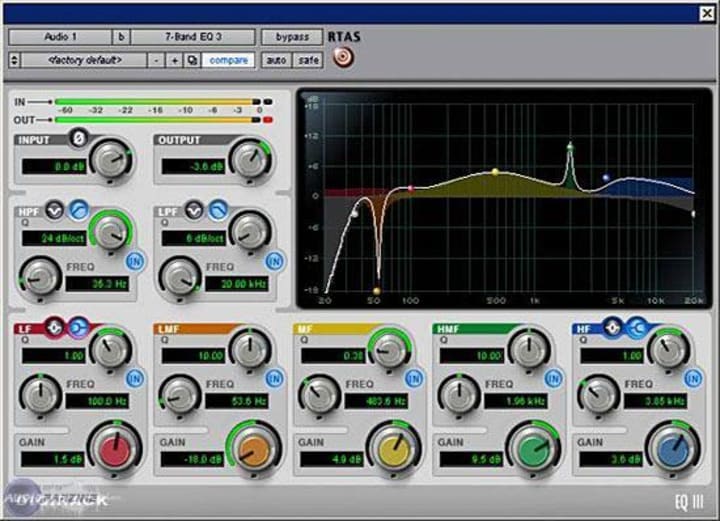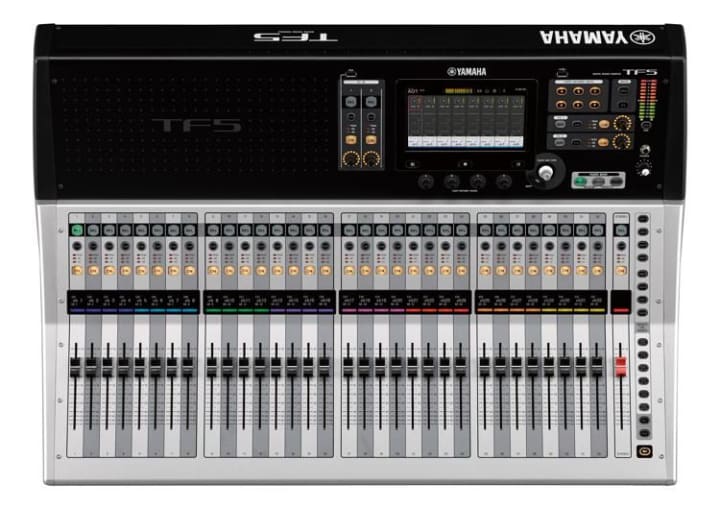Knowing vs. Not Knowing
Do they really understand?

Just from my time working live sound at my church, and after taking a training course on audio sound. I have learned just how different it is between people that know what they are doing and those that don't fully understand. Those that do not fully understand how to mix live sound, you can hear an obvious difference the how everything sounds. Often times, they change settings when they don't fully know how to use or what it does, it changes the sound dramatically. Before I learned I only changed the basic things. I did not change anything I did not understand what or how they worked. After going through the training and learning what those things did, that's when I started to use them. I know what to listen for.
It helps when you are a musician or understand music and how instruments should sound. With that it helps with your sound quality. The goal is to make it sound live. But you also need to make it to be heard. Recording and live don't have many different concepts. A lot of concepts for recording, such as equalizers, compression, and Gates, are essentially the same. They are also vital to sound and sound quality and blending multiple instruments and vocals together.


The interesting part is asking an audio engineer to change other settings because one thing was changed by someone else and they didn't want to mess it up. But in reality all I have to do was copy the setting into the second set of things so that the changes in instruments and vocals do not have to change any. Especially if the one thing that they want the same is relatively the same settings as the second set of setting with one minor difference that is easy to copy.
In all honesty the second set of settings have had no issues. But the person you mixed the first set and the person who mixed the second are not the same person. So based on what one person did, they originally had setting that did not work properly and needed to be changed. Whereas the settings all worked in the second set but added the minor changes so that both setting kind of match.
Even so, having had training to be able to do a proper mix as well as troubleshoot an issues and determine corrections, cannot compare to someone that does not know how to use all of the functions but wants to pretend that they do and when something goes wrong they have to pay money for time in asking an engineer for his help in solving the problem without them actually being there.
Some musicians and every members of the audience can tell if the sound is good or bad compared to a morning run through with one sound tech and an evening with a different one. There is also a difference between volunteering to run sound but only learning basic knowledge to get by and choosing to further your knowledge in it in order to make it even better.
Which would you prefer? Someone that only has a basic knowledge and is really only tech savvy and doesn't quite have an ear for sound quality, balancing, and making sure everything fits without feedback, or cut outs in the sound, or not being able to properly troubleshoot issues. Or would it be better to have someone, even if they are a volunteer, that has a better knowledge of what to do and how to do it, and could also help with doing in depth training for other volunteers in order for there to be a rotation of sound techs that are capable and confident in what they are to do.

But having knowledge isn't the only thing needed here. If you don't have an ear for it, or as it's called in the language of audio engineering, then you wont make a high quality mix. When I say you need an ear for it, it's saying you can tell the difference with what little changes need to be done. You can hear the feedback of a microphone without interrupting the rehearsal too much for live sound. Which in recording will give more room to build the song. When you know how an instrument should sound, that helps with making changes to make the instruments sound as if they were in the room with you. Hearing that hit of a kick drum, or the strum of the guitar and the deep low end of a bass guitar. Then you fit the pieces together to blend them into a song.
In the end, there is a difference in sound depending on who does it and their knowledge and skill. You can because an audio engineer without knowing anything at all. It is best to go through some training to learn the pieces that you would use. Without knowing or having an ear for sound, you won't make the best mixes and you may end up with poor quality. So be encouraged that you can learn it. There are audio engineers out there willing to train and teach this stuff. If you don't care for it, that is fine. But if you want too improve and make your live sound amazing, it is completely worth it, even if you do not seek a career in it.
About the Creator
Brittany Seebo
Hey Hey
I'm a writer, or I try to be. I have a larger passion for music and so I became an Audio Engineer. I look forward to sharing knowledge, information, projects, recordings, etc. Maybe share stories for others with Cystic Fibrosis.






Comments
There are no comments for this story
Be the first to respond and start the conversation.